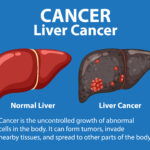The term known as the bipolar disorder have their origins from the Greek methodology. Here, ‘Melancholy’ is derived from black and chole from ‘bile’.Further, Mania is derived from ‘menos’ spirit.
The idea of the relationship between mania and depression can be known from the Ancient Greeks particular from the Aretaeus of Cappadocia.who was a philosopher and a physician. Although, he said that the behavioral patterns were the result of bipolar disorder, there were other factors which were involved in it.
As time progressed, there was an introduction of the modern bipolar disorder in the year 1855. In the early 1900s, German Psychiatrist Emil Kraepelin learned about the natural course of the disorder. Hence, the terms ‘manic depression’ and bipolar disorder are recent terms and were found between the years 1950s and 1980s. And till date, different researches and treatments are ongoing for treating this disorder.
What is Bipolar Disorder?
The Bipolar Disorder also known as the manic depression or manic depressive disorder is a critical mental illness. This type of disorder can result in mental illness, can damage relationships and can create suicidal thoughts every now and then.
For identifying bipolar disorder, it is often identified by sudden changes in mood ranging from depression to mania. Between these reoccurring episodes, patients with bipolar disorder can also experience normal moods.
Further, because of the high and low patterns, moods of an individual can vary and the bipolar disorder can become difficult to diagnose. It can last for weeks, months and years depending on the severity of the bipolar disorder. For people who suffer from severe bipolar disorders, they can have brief mood episodes which can make the diagnosis process much worse.
For the families of bipolar disorder, it is difficult for the families who are dealing with it. It is one of the most difficult mental condition for families to accept on the basis of experts.
Types of Bipolar Disorder
Source : http://prohealthinsight.com/wp-content/uploads/2018/04/Types-of-Bipolar-Disorder-and-Lifetime-Prevalence-Rates.png
The Bipolar Disorder also known as the Manic Depression was earlier known as one disorder. But now, after a series of researches, the disorder has come up with different subtypes and are distinguished by different symptoms.
Moods Found in Bipolar Disorder
1. Manic Episode (Mania)
It is known as the distinct period in which abnormal and elevated behavior is seen in different patients. It usually lasts for at least one week and does require hospitalization in most of the cases.
2. Hypomanic Episode (Hypomania)
It can be defined as the milder form of depression which can last for at least four days.
3. Major Depressive Episode (Depression)
The Major Depressive Episode can be defined as a period in which the patient can be extremely depressed or will go through lack of interest. In every other activity, the patients will feel unworthy and it will last for at least two weeks.
Bipolar Disorder Different Types
Currently, there are four types of bipolar disorder which are given by the Manual of Mental Disorders:
Bipolar I Disorder
It is characterized by either one or more manic and mixed episodes. In addition, in rare cases, patients can suffer from major depressive episodes as well. Normally, the Bipolar I Disorder is said to be the most intense form of illness which can be derived from tremendous manic episodes.
Bipolar II Disorder
The Bipolar II Disorder is characterized by depressive episodes which can be accompanied by some hypomanic ones. In the range of symptoms, the hypomanic episodes have similar types of symptoms but are not much severe. For some patients, the hypomanic episodes are not that detrimental. But for some, it can pose some serious damages in the long run.
Mixed Features
In Mixed Episode, the patient experiences depressive as well as manic symptoms each and every day for at least one week. Mixed Episode is the hardest of all disorders to treat.
Cyclothymic Disorder
Generally, the Cyclothymic disorder is derived from chronic fluctuating moods which has periods of depression and hypomania. However, in Cyclothymic, the depression level does not rise to a severe extent. Many of the patients who are suffering from this type of bipolar disorder are hyper-productive in most cases.
Bipolar Disorder Symptoms
The Bipolar Disorder Symptoms are often identified by different mood swings where there are mixed feelings of greatness and hopelessness. The symptoms of bipolar disorder come in cycles which can last from days to months depending on the severity level.
At first, the defining symptom of bipolar disorder is caused by a series of mood swings. Here, there is the occurrence of different episodes where the person can become irritated at times. In the early stages, symptoms of bipolar disorder can become a high issue other than mental illness. But, if we talk about children, the concept of bipolar disorder becomes different. In them, the bipolar disorder is known as the “Disruptive Mood Dysregulation Disorder”.
Quick List of the Different Symptoms in Bipolar Disorder
When a patient is suffering from hypomanic or manic phase, the symptoms include:
- Exaggeration in the positive outlook
- Loss of weight and poor appetite
- Racing speeches, impulsiveness, and flight of ideas
- Weak Concentration and low in determination.
- The boost in the activity level
- Poor choice in financial decisions
- Aggressive behavior
- Ideas change rapidly
When a patient is suffering from depression phase, the bipolar symptoms include:
- Feeling sad and hopeless
- Difficulty in sleeping and waking up much early in the morning
- Gaining weight and weight loss at frequent occasions
- Suicidal thoughts and talking about suicide every time
- The loss in the overall energy & constant lethargy
- Loss of interest in physical activities
- Low in self-esteem and feeling of guilt every time
Causes of Bipolar Disorder
Even now, no one knows the actual causes of bipolar disorder. On the basis of studies, there is the presence of one genetic component. But, DNA alone is not responsible for causing bipolar disorder. According to most of the researchers, environmental and physical factors are the prime culprit which leads to bipolar disorder.
- Genetic Factor
Whenever we think about the biological causes, inherited nature of bipolar disease comes into existence. This issue has been examined in multiple families and twin children’s. In families, normally parents and children’s have high chances of suffering from bipolar disorder.
- Societal Factors
Different mood episodes in bipolar disorder can occur from a series of stressful events which can happen at any point in time. However, how exactly stress triggers the bipolar disorder is still not understood yet. According to scientists, they believe that cortisol plays a major role in causing bipolar mood disorder.
- Environmental Triggers
For depressive episodes, there are different environmental triggers which are as follows:
- Physical injury and Illness
- Menstruation
- Lack of Exercise
- Traveling
- Sleep disruption or deprivation
- Physical injury
Treatment for Bipolar Disorder
Source : https://as2.ftcdn.net/jpg/01/05/50/35/500_F_105503571_GAuiJdtth4ybAw1YmMNBK8f6ZCvGQE5X.jpg
Treatment for Bipolar Disorder can be the best guided with the help of a doctor who has specialization in diagnosing and treating bipolar disorder. Generally, a psychiatrist is the ideal option in this case.
Treatment measures are aimed at managing the symptoms and depending on patients needs, treatment includes:
- Medications:
At first, if you are suffering from a bipolar mood disorder, you will have to take medications for balancing your moods.
- Continued Treatments:
For treating Bipolar Disorder, you will have to go through a long-term period of medication. Even during the periods when you feel normal, Patients who skip their bipolar disorder treatment will have higher chances of dealing with manic depressions for a prolonged period of time.
- Day Treatments:
At times, your doctor can recommend you a series of day treatment programs. These programs will be helpful for assisting you to provide counseling and support while you get your symptoms under control.
- Hospitalization:
If Bipolar Disorder becomes severe, your doctor might suggest you hospitalization if your behavior is on the dangerous note. In such cases, you will feel suicidal and can become detached from reality. Getting a series of treatment in the hospital can help the patient stay calm, stabilize the mood and move towards betterment.
- Substance Abuse Treatment:
If you are dealing with excessive alcohol and drug consumption, you will have to go for substance abuse treatment. Otherwise, it will become really difficult for managing bipolar disorder.
FAQ’s on Bipolar Mood Disorder
1. Is there any test which can tell if I am suffering from inheriting Bipolar Disorder?
At present, there is no test which can tell that an individual is on the verge of getting bipolar mood disorder. But, it is less possible that a single gene will be responsible for causing bipolar mood disorder.
2. Can someone deal with a medical condition which appears as a bipolar disorder but is actually something else?
Different conditions can mimic the bipolar mood disorder. The most common ones are:
- HIV Infection
- Thyroid Conditions
- Tuberculosis
- Neurological Diseases such as Brain Tumors
- Deficiency of vitamins like Vitamin B12
3. If I am treated for bipolar disorder, will be on medication for all my Life?
Not necessary in most of the cases. However, if the episodes are much more frightening, patients are advised to stay on medication for a longer period of time.
4. How can lifestyles affect the bipolar mood disorder?
Lack of a disciplined routine and irregular sleep patterns can build up in the occurrence of mood episodes. Here, choosing regular work and sleeping properly can help with a good sense of healthy mental functioning. Families on their part can include good mental hygiene in which they can go to bed early and wake up at the same time every day.



